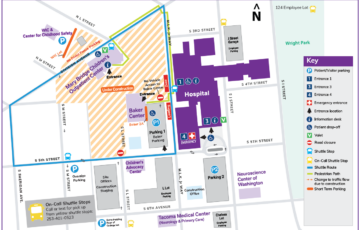
When babies arrive, parents are often overwhelmed by the changes to their routines and households. Considering that babies are so dependent on others for their basic needs, it can come as a surprise to some new parents how soon they need to think about safety issues.
At the 6 month visit, I usually speak with parents about safety and start recommending some important steps they can take before their baby becomes mobile. By 9 months most infants begin to crawl, sit unsupported, pull up alongside furniture or their cribs, and develop the pincer grasp (using their thumb and index finger) to grasp small objects. This increased mobility and curiosity are a perfect blend for unexpected and unwanted injuries!
So where do you start?
There are many child-proofing products on the market, but a good place to start is with some simple, common sense changes.
Medications and cleaning products
Instead of using difficult to install and sometimes ineffective cabinet locks, simply store all medications and cleaning products including detergent packets out of sight and out of reach. Don’t forget the chemicals lurking in the garage!!
Keep medications in their original bottles with child-resistant caps.
If your children are staying in somebody else’s home, please remind them to keep medications up and away, especially at grandparents’ home. Here is a great link for more information.
Small objects
Check your floors regularly for small objects, especially if a sibling has toys with small parts.
Ensure that battery covers are secure on remote controls, fobs, and greeting cards. Be especially cautious of devices that use small button batteries; these can cause severe injury or death if ingested.
Be prepared. Take an infant/toddler CPR course or ask your provider how to clear a foreign object from your child’s airway if the situation arises!
Water safety
Infants and toddlers should never be left alone in the bathtub; not even for a few seconds!
If you have a hot tub or in-ground swimming pool on the property, the best protection is to install a climb-proof fence that is at least 4-feet tall around the perimeter with a self-closing gate.
For above-ground pools, keep children away from steps or ladders. Remove the ladder when the pool is not in use.
Burn prevention
Use caution when serving food that has been heated in a microwave. Never use a microwave to warm your baby’s bottle.
Do not leave food cooking on the stove unattended.
Adjust your water heater so water temperature is no more than 120 degrees F.
Keep matches and lighters away from children. Install fire alarms in the kitchen, living room, hallways, and outside bedrooms, as well as near the furnace. Test them regularly and replace batteries annually.
Install outlet covers on all electrical outlets to prevent electrocution and electrical burns.
Furniture tip-overs
Anchor all furniture especially dressers, bookcases, and mirrors to the wall, preferably with dry-wall screws into a stud.
All televisions should be firmly mounted to a wall or a piece of furniture. Avoid storing tempting electronics such as tablets, phones, and remotes on or above furniture they can climb on.
Place corner guards on sharp corners of furniture and consider storing or getting rid of furniture with glass.
Remove overhanging tablecloths or runners from furniture. Remember, your little one will be using what they can find to pull themselves up and may inadvertently pull a heavy object or hot liquid onto themselves!
Preventing falls
Gates should be used at the top AND bottom of stairs. Preferably, the gate at the top of the stairs should be anchored to the wall studs if possible.
Keep beds and other furniture away from windows.
Install window guards.
These are a few safety tips and reminders to keep in mind as your infant develops and matures into a curious, independent, strong-willed toddler! With a lot of common sense and practical changes to your home and your everyday life you can help prevent serious injury or death.
Related Stories



